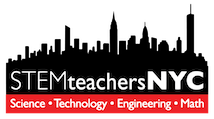The November 20 meeting of the New Teachers Working Group centered on sharing successes, addressing challenges, and brainstorming strategies to enhance teaching practices and student engagement. One member highlighted a revised unit on chemical reactions, which used a discovery-based approach with an emphasis on claim, evidence, and reasoning. This unit began with a phenomenon to spark curiosity and guided students through analyzing physical versus chemical changes, testability, experimental design, and real-world applications, such as mitigating environmental impacts. This educator observed encouraging signs of students developing self-motivation as a positive outcome of these strategies.
Members raised concerns about system-wide mandates that seemed disconnected from classroom realities, especially in the areas of student assessment and feedback. Participants noted, however, that these challenges had fostered valuable collegial interactions aimed at implementing the mandates in meaningful ways. The group also discussed strategies to help students better understand and execute lab procedures efficiently. Suggestions included having students read procedures before class, engaging them in tasks like sequencing procedural steps for designing data tables, and emphasizing key terminology and equipment use.
The working group had a strong discussion centered on classroom management and fostering positive student-teacher interactions. Members emphasized the importance of being open to “resetting” classroom dynamics by addressing disruptions constructively, either with the entire class or individual students. Strategies included soliciting student feedback through questionnaires, discussing what activities or assignments they found most or least helpful, and identifying their personal accomplishments in the class. These approaches should be framed opportunities to build mutual understanding and refine instructional methods.
The group exchanged free resources throughout the meeting. Members shared creative ideas for teaching the periodic table, such as color-coding, exploring its history through resources like Crash Course Chemistry, and engaging students with activities like the “Amazing Element Race” or the “Periodic Aliens” project. They also recommended classroom management strategies, such as insights from Better Than Carrots or Sticks. Overall, the meeting underscored the value of collaboration in addressing both pedagogical challenges and successes while fostering a supportive network for new educators.
Note: summaries are written with aid of AI text software

